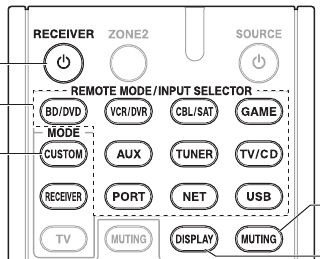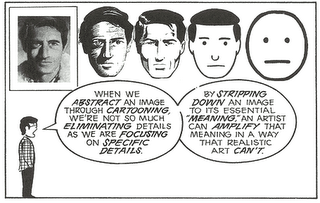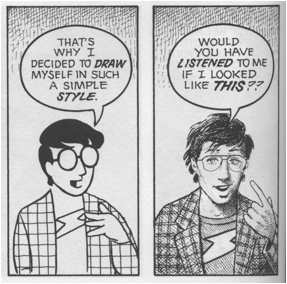I try not to think about the fact that it's been seven years since I got my CS degree and I haven't put it to use professionally.
I entered the field at the wrong time and in the wrong place. It's rough all over, and the housing bubble hit Arizona disproportionately hard. I've spent the past few years working as a temp and building the odd website on the side.
The first temp gig lasted two years -- ironically, longer than any other job I've had. But I got laid off about a year ago.
There's this kind of paranoia you get. It could happen again any time. And it has absolutely nothing to do with how hard you work or how good a job you do. You could be out on your ass tomorrow, on the whim of some guy you've never met.
I've heard some of the "get a job" rhetoric lately and it's just baffling. A hell of a lot of people would like very much to get a job. I've been either unemployed or underemployed my whole adult life, and that's with a degree that, fifteen years ago, could have gotten me six figures.
Not that I intend this as a pity party. I've got work now, and it pays well enough to live comfortably while still squirreling away enough each week that I'll be okay for a few months if I find myself unemployed again. There are a lot of guys who have it a lot worse than I do.
And if you take anything away from this comedy of errors, let it be that: this is the story of a guy who's doing okay in this economy.
Job 1: Fortune 500 Company, Real Estate Business
Job: Imaging laptops, working in a warehouse, inventory duty
Distance from Home: 3.5 miles
Best Thing: Laid-back atmosphere most of the time
Worst Thing: Lung fungus
Length of Service: 2 years
This wasn't a bad gig, really. Not intellectually challenging, but I worked with some good people, I got some good exercise in, and most times things were pretty laid-back.
But it wasn't worth giving up my health for, and ultimately that's what I did.
I did a lot of work out in a dusty warehouse, and I managed to contract valley fever. For those of you not from around here, valley fever is a lung fungus, and it lives in dust. The Valley and valley fever are like the Internet and Hitler comparisons -- you stay there long enough, it's something you're eventually going to have to deal with.
So I contracted a lung fungus working there, and I've still got asthma. It's manageable now, but I'm not what I was. Before I took that job I was healthy.
The next-worst thing about the job, after the lung fungus, was the meddling from up the chain. People with little-to-no grasp of our actual day-to-day operations had very strong opinions of what those operations should be, and precisely which boxes we should check on which forms each and every single time we did them. Precisely what those opinions were tended to change from week-to-week, producing an ever-changing, increasingly complex system for dealing with very simple tasks.
And as this went on, the environment became less and less laid-back, and more and more stressful.
There was a real disconnect between the building I was in and management out on the west coast. Within my office I was regarded as an essential member of the team, and indeed my bosses not only recognized my value, they realized that I could probably be doing more for the company than just counting how many sticks of RAM were left in inventory, and fought hard to get me not only hired on but promoted.
It's no small comfort to me that every single person who actually worked with me was pulling for me. To the point that when Corporate decreed that all the temps would be let go, my boss's boss's boss got reassigned for telling his boss's boss's boss exactly how he felt about that.
It was nothing personal. And it was nothing to do with my performance. I was just caught up in a bloodbath. I was part of the first wave, but it kept going. Last I heard, they'd laid off another third of my department, every help desk tech in Arizona, nearly everyone in the front office, and most of the people up the chain to VP. And demoted my boss back down to tech.
But before all that, I got a layoff for Christmas. I lost my job two years, to the week, after I'd gotten it.
There's a fatalism that kicks in after awhile. A knowledge that no matter how hard you work and how much you're appreciated, there's some clown in a corner office somewhere who's never met you but has the power to decide whether you're drawing a paycheck next week.
But ultimately there's something liberating about that, too. After awhile you stop trying to impress the clowns in the corner offices who have never met you. You realize the only people worth giving two shits about are the ones you deal with every day -- and that trying to impress them isn't about whether you'll have a job next week, it's about doing a good job for its own sake and for the sake of your team.
Those guys had my back. And that means more to me than a paycheck ever did.
Unemployment
Unemployment sucks. But it could be worse.
It's a pretty damn smooth process in this day and age -- all online, no driving across town and waiting in line. You fill out an online form, they take a week or two to make sure your story checks out, and then they open up a bank account for you, send you a card, and put money in every week.
Once a week you'll have to resubmit your claim. You tell them you're still looking for work (and keep evidence on file in case they ask for it -- I kept rather a long Excel spreadsheet with a list of everybody I'd contacted) and declare any money you've earned.
The whole thing's demoralizing and more than a little Kafkaesque -- Ursula K Le Guin recently described it quite wonderfully in a short story called Ninety-Nine Weeks: A Fairy Tale, and it's barely an exaggeration. That spreadsheet I mentioned where I kept track of all the dozens jobs I applied for? Only one of them ever actually got me an offer, and it was out-of-state -- more on that below. By the time I did finally get work again, it wasn't from the job search, it was from the same temp agency I'd been working for since '08.
Job 2: Local Non-Profit, Medical Industry
Job: Imaging laptops
Distance from Home: 13 miles
Best Thing: A job!
Worst Thing: Poor pay, sporadic availability
Length of Service: 3 months, off and on
This one wasn't too bad either. Neat office, nice people, and a certain degree of autonomy. The cramped little room I worked in got pretty crowded and hot as time went on, and there was a whole lot of downtime as I waited for laptops to finish imaging, but hey, I got time to catch up on my reading.
I also learned some interesting things about security policy. I've never had to lock things down so tightly from the BIOS -- a unique strong boot password on every machine, USB boot disabled, Bluetooth disabled, and on and on.
The toughest thing was that this wasn't a 40-hour-a-week job. It was "We just got these laptops in; image them and when you're done we'll send you home and call you back in when we get more."
And, without getting into the specifics of my pay, here's where that got frustrating: often I didn't make significantly more money than if I'd just stayed at home and collected unemployment.
Unemployment in Arizona works like this: you get a weekly stipend of up to $240. I was eligible for that maximum amount.
Every week, you report how much you've earned. You can earn up to $30 before they start subtracting your earnings from your unemployment check.
So there's this sort of dead zone between $30 and $270 where you are making the same amount of money whether you work or not.
And at this job, I frequently worked a weird part-time schedule and fell into that zone. Once I got past that first $30, I wasn't actually making any money; I was just getting a paycheck from the temp agency instead of the state.
Obviously there are still reasons to work. For its own sake, first of all. And second, to stay eligible for my healthcare, which was set to expire after three months without work. (I got back into the market just in time, but not fast enough to keep someone from fucking up my paperwork and taking me off their books even though I was still paying in every week. I had to call three different departments to get it corrected and my last prescription covered.) But there's still a definite sense of frustration in knowing that you're effectively working for free.
More than one other tech actually told me I should slow down and deliberately take longer to do the work so that I wouldn't get sent home in the middle of the week to await the next shipment. What a position to be in -- effectively being punished for being efficient, and incentivized to slow down and waste time.
This, as you will see, was to become a recurring theme.
Job 3: Company You've Probably Heard Of If You Live in North America, Retail Business
Job: Phone support
Distance from Current Home: 30 miles
Distance from Apartment Where I Lived 4 Years Ago: Directly across the street
Best Thing: Coworkers seem like all right guys
Worst Thing: The single worst job I have ever had. Fuck these people.
Length of Service: About a month
On some level, this fucking fiasco was my own doing.
I'd been poking through listings on some job site or other (probably not CareerBuilder; I quit using it after I discovered it was the thing that kept locking up my browser and hanging my entire system) and I noticed an IT job being offered through my temp agency which my rep hadn't brought to my attention. So I E-Mailed him and asked about it. In hindsight, I should have assumed there was a good reason he hadn't approached me about it.
It was phone support. Not phone support like I'd done before, but in a phone bank -- I had a few feet of shelf that I wouldn't really refer to as a desk, partitioned off from the guys next to me by small dividers that I wouldn't really refer to as a cubicle. Every morning at 6 AM I pulled up whatever broken chair nobody was sitting in, put on a headset if it was still where I'd left it the day before, and started working my way through a list of branches to call to walk their managers through installing new kiosks that didn't work very well in buildings that, half the time, weren't cabled correctly. (Ever walk a retail manager through recabling a patch panel? I've done it six times before breakfast.) It was dimly lit and it was dehumanizing -- I'd compare it to an assembly line, but the assembly lines I've seen are a whole lot livelier and more fun.
(I will grant one thing to the "cog in a corporate machine" setup: this is a company with hundreds of stores, all organized exactly the same. Each store has the same patch panel with the same numbered ports that go to the same rooms and assign IP's based on the same scheme. There was this in-house .NET program we had that would let you plug in a store number, automatically populate the IP address for every port in the place, and give you a one-click ping for each one. That's the advantage of a company that treats its stores as unifom, cookie-cutter widgets. The disadvantage is that it treats people exactly the same way.)
I spent most of each day on hold listening to the same fucking 16 bars of piano music over and over again. Periodically interrupted by a recorded voice telling me I was on hold, of course -- and if I ever meet the son of a bitch who decided to stick voice recordings in the middle of hold music, I am going to gouge his eyes out with my thumbs. I know I'm on hold, asshole; that's why there is music playing. About the only thing that could trick me into thinking that I wasn't on hold would be if the music abruptly stopped and I heard a human voice instead.
There were a couple of guys there who I'd gone to high school with. One of them I recognized but hadn't really known very well; the other used to pick on me but claimed not to remember me (he blamed it on the drugs he'd been doing back then and I am inclined to believe him). Now, remember how earlier I expressed frustration that my career hasn't really gone anywhere? Well, if you want a symbol that will hammer that little insecurity home, suddenly finding yourself sitting next to a couple of guys from high school is a pretty good one. But probably not as good as being directly across the street from the apartment where you lived back when you worked a previous dead-end job. Man, that would have been a sweet commute in 2007!
So no, let's say that this job wasn't the best fit for me. But dammit, I got up every morning at 4:30, put on a smile, went in, did my job and did it well. I blew through every task they gave me and asked for more.
This, as it turned out, was a problem. But nobody ever actually bothered to tell me that.
One morning I walked in and found that my login wasn't working. I asked the guy who'd been training me; he hemmed and hawed and wandered off for awhile, then came back and told me to turn in my badge.
It bears repeating, at this point, that I had just driven 30 miles to show up to work at 6 AM.
My rep told me that they'd called his office the previous evening to tell him to call me and tell me not to come in to work in the morning -- after he'd already gone home for the day.
He added that I'd been sacked because they thought I didn't schmooze enough with the end users over the phone -- something that nobody had ever actually complained to me about. I wasn't rude, or even brusque; I was just, in my rep's words, "too focused on getting the job done". I'm used to support jobs emphasizing getting the task done quickly, because the user doesn't want to be on the phone and wants to get back to what she was doing. But apparently that's not how it worked at this company; they wanted me to slow down and shoot the breeze -- except nobody ever bothered to tell me that. Come on, guys, if you want me to talk about the weather, just say so -- I have quite a lot to say about the weather in Phoenix in June, even when half the state isn't on fire.
Anyhow, it's the only job I've ever been fired from. And nobody even bothered to tell me there was a problem, let alone that I'd been fired.
The guy who walked me to the door was apologetic and told me not to worry about it, that people get fired from that place all the time through no fault of their own; maybe just for looking at somebody the wrong way. And it occurred to me that I'd passed my boss early one morning in the hall and, when she asked how I was doing, cracked a grin and responded "Hanging in there" -- and she apparently took offense that I hadn't said something more enthusiastic.
On the whole, pretty demoralizing and upsetting, and far and away the worst professional experience I have ever had.
Of course, I use the term "professional" in its loosest possible sense.
Job Interviews
Through it all, of course, I was interviewing wherever I could.
There are lots of stories I could tell. The temp agency I spent half an hour trying to find. The interview where I referred to a former coworker as "A temp like me, but kind of a slacker" but the interviewer just caught the "like me, kind of a slacker" part and that pretty well torpedoed me. The interviewer who asked me about a comment I'd posted about Spore's DRM on the FTC website back in '09 and then followed up by asking my opinion about SB1070. But the best story is the hosting company I saw advertised on a billboard.
"Do you know Linux? We're hiring!" said the billboard, with a colorful mascot next to the words. I would see it on the freeway on my way to work. Or maybe it was on my way home from work. Maybe it was both; I think they had more than one billboard.
Well, hell yeah I know Linux. I pulled up the website and submitted a resume. Turned out it was a hosting company -- even better. I spent most of '07 running the backend of a local ISP singlehandedly; I know my way around Apache httpd and MS IIS pretty well.
So they called me back, and the most immediately odd thing was that they told me the job was in Austin. Why would a company in Austin advertise in Phoenix?
Well, of course the answer is that they couldn't find anybody in Austin willing to accept the shitty salary they want to pay for Linux administration, so they're advertising in depressed markets that are full of desperate, unemployed Linux admins. But as you might expect, they didn't come right out and say that.
No, they gave me some talk about how they're expanding into new markets, and how they'd pay for my relocation, and they didn't balk when I gave them a deliberately high figure for my expected salary. They made the whole process seem very exclusive, putting me through three different interviews -- a general one, a second one with a series of technical questions, and a third where they had me SSH into one of their servers and demonstrate that I know my way around bash.
And then they offered me an hourly rate that was maybe fifty cents better than what I was currently getting in the phone bank. And a relocation fee that might have covered a U-Haul rental, deposit, and first month's rent on an apartment.
I hear Austin is a neat place, but no thank you.
It was about this point that I decided to read some employee testimonials on the place, and it sounded suspiciously like the terrible job I was already working at.
The billboards are down now. I wonder if they ever found anybody desperate or gullible enough to take their offer.
Job 4: Contractor for a Contractor for a Contractor, Insurance Industry
Job: Imaging laptops
Distance from Home: 32 miles
Best Thing: Getting work immediately after the previous fiasco; autonomy and people who were happy to see me
Worst Thing: Night crew fired after their first day
Length of Service: 6 weeks
Actually, before this job my rep sprang into action and got me a half-day gig fixing a company's QuickBooks setup, a mere 5 days after the debacle at my previous job. But I'm not counting that as its own section. My rep's cool, though.
Anyhow, shortly after the half-day QB fixer-upper, he found me something else and, at last, I got to be part of a Windows 7 refresh -- the precise thing that my boss, the previous December, had assured me would ensure my job security for another year, the week before announcing that the Windows 7 rollout had been canceled and so had my employment.
Anyhow, this one was interesting. The idea was to provide a minimum of disruption for the employees, while upgrading most of the office to Win7 in a matter of weeks.
So we had a night crew. They came in, ran a script to back up the user's files, either reimaged the user's existing computer or grabbed a new, freshly-imaged one that I'd already put together, restored from backup, and left it to me to walk the user through initial configuration the next morning.
At least, that's how we eventually got it working. The first night, things failed rather spectacularly.
I got in the next morning to find the night crew still there, a small handful of computers actually in working condition, and the rest in various states of completion.
The way I heard the story went something like this: one tech on the crew had asked the guy in charge what the plan was -- how they were going to split up the workload, what the schedule was, etc. He had made some vague "Just get started" noises. She asked him a few more times; he responded similarly. Finally she just went to work; she was responsible for the handful of machines that had actually been finished, while the other techs hadn't really worked out a plan for how to get their work done.
So the company fired everyone else and put her in charge of the new team.
After that it went really smoothly most nights. There were a couple exceptions -- one weekend when the generator had to be turned off for maintenance and so they couldn't come in to get computers ready for Monday, and one night when the AC was out and it was too hot to work. But no more problems from the techs themselves; the second crew did a really great job and made my life much easier.
Job 5: Company You've Probably Heard Of If You Live in the Southwestern US, Real Estate Business
Job: Imaging laptops
Distance from Home: 22.5 miles
Best Thing: Autonomy
Worst Thing: Still a bit of a drive.
Length of Service: 4 months so far, out of a one-year contract.
And from there I moved on to my fifth job of the year, not including freelance Web design or that one-day gig fixing QuickBooks.
This one comes with a one-year contract, so hopefully that'll hold and I'll still be there through next August. But I'm not going to take that for granted; one of the many lessons I learned in the Dank Pit of Phone Support last summer is that a six-month contract can turn into a one-month contract with absolutely no warning. Course, I've been working this one long enough that I am confident in saying that this time I am working for decent human beings, but again, it's not the people I've actually met I'm worried about. And every time I hear the Windows 7 rollout's been delayed, I get a little nervous.
I guess it's worth asking, what motivates me to come to work every day and do a good job? Here's what I can come up with:
- Need for money
- Need for health insurance
- Pride
- Loyalty to my coworkers
It's instructive to note the things that aren't on the list. "Hope for promotion" and "fear of losing my job" are conspicuously absent -- yes, I do feel both of those things, but as I've mentioned several times, I have absolutely no sense that my employment or advancement is tied to my performance in any way. They're motivating factors just as much as the potential for finding a $100 bill on the ground or tripping and cracking my skull -- they're both things that have some potential for happening, and my job performance has about as much to do with the likelihood of either one.
Also missing: "company loyalty". And unlike those other two things, this isn't something I have in the slightest. I am, as I said, loyal to my coworkers, and I appreciate my rep at the temp agency, but that's not the same thing as being loyal to either the company I'm working for or the company that placed me there. If I get a better offer I'll take it -- and those last two bullet points are the only reasons I'll give two weeks' notice.
On the whole I'm not entirely sure this is a bad thing from my perspective -- hell, the ideal list would probably have two bullet points instead of four. Company loyalty, the stick of firing and the carrot of advancement -- I don't need those things to do a good job. But from the company's perspective, it's probably a bad thing.
And if I may be so bold, I think I'm probably representative of a good solid chunk of my generation. Educated, underemployed, unable to hold down a job for more than two years through no fault of my own -- what happens when that's your workforce? In the coming decades we're going to find out.
 From there I hooked up the rest of my various devices. The Onkyo remote has the now-typical problem of a shitload of different inputs with sometimes arbitrary names -- "GAME" works fine for the component switch connected to my Wii and PS2 (another aside: I wish the thing had more component inputs so I wouldn't need a component switch at all -- but obviously analog is on its way out and I'm sure in a few years I'll have enough HDMI devices that I will be grateful for the emphasis on the new input over the old), but, absent anything resembling "HTPC", I have my HTPC connected under "BD/DVD". My seldom-used DVD/VCR combo is under "VCR/DVR", and my TV audio is connected to "TV/CD", which inexplicably is not the same button as "TV"; the "TV" button can't actually be assigned to any audio input. (I guess people connecting the audio output of their TV into an input on the receiver are probably a rarity; most people have cable boxes which they can connect to the receiver and then output to the TV. But I don't have cable TV, and we sometimes watch broadcast TV. Such people do exist!)
From there I hooked up the rest of my various devices. The Onkyo remote has the now-typical problem of a shitload of different inputs with sometimes arbitrary names -- "GAME" works fine for the component switch connected to my Wii and PS2 (another aside: I wish the thing had more component inputs so I wouldn't need a component switch at all -- but obviously analog is on its way out and I'm sure in a few years I'll have enough HDMI devices that I will be grateful for the emphasis on the new input over the old), but, absent anything resembling "HTPC", I have my HTPC connected under "BD/DVD". My seldom-used DVD/VCR combo is under "VCR/DVR", and my TV audio is connected to "TV/CD", which inexplicably is not the same button as "TV"; the "TV" button can't actually be assigned to any audio input. (I guess people connecting the audio output of their TV into an input on the receiver are probably a rarity; most people have cable boxes which they can connect to the receiver and then output to the TV. But I don't have cable TV, and we sometimes watch broadcast TV. Such people do exist!)




